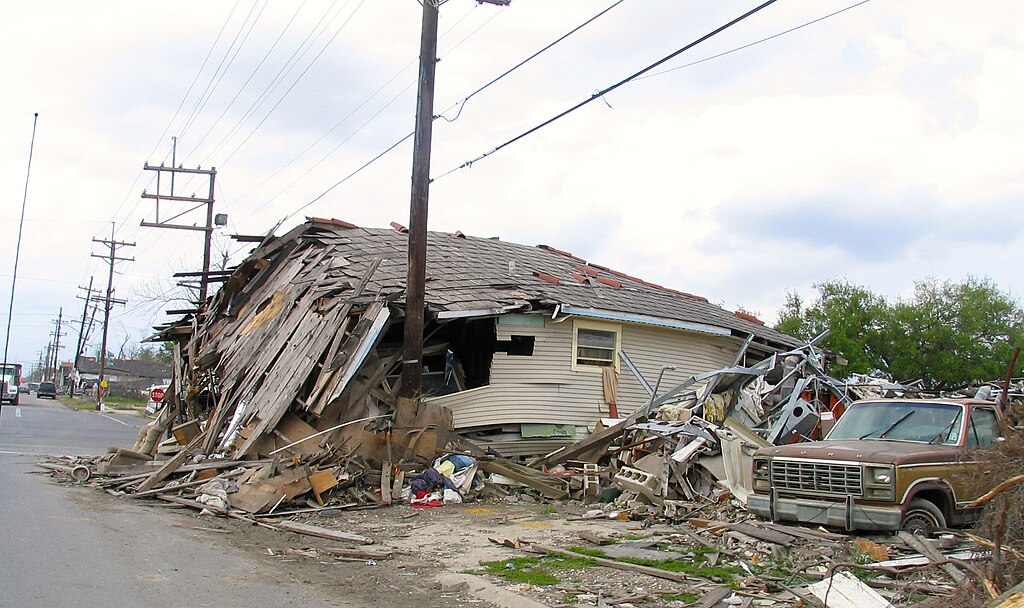Twenty years ago, Mark Clemens stepped off an airplane into the devastated landscape left by Hurricane Katrina.
With two decades of experience in Washington’s Emergency Management program, Clemens was no stranger to disaster. He had helped respond to floods, wildfires and toxic spills.
But Katrina proved to be a catastrophe on another scale. marked by 135 mph winds, torrential rains, and a surge of gulf waters almost 30 feet high. The hurricane claimed approximately 1,400 lives and inflicted $125 billion in damages, devastating much of New Orleans and the lower Mississippi delta.
On loan to FEMA, Clemens joined other responders, based in a flooded-out casino in lower Miississippi, all dealing with broken transportation and communication systems. Yet, amid the chaos, he recognized a familiar phenomenon: the innate human capacity to rise above calamity and support one another.

This resilience became the central theme of his newly released novel, Infinite Tenderness. Clemens’ tale follows a father and mother, long estranged but re-united as they search desperately for their troubled 18-year-old son who vanishes just before Hurricane Katrina strikes.
The frantic parents enlist the support of two government emergency officials in a search that weaves urgency and tenderness into a quest for hope against a backdrop of destruction. Clemens paints vivid scenes of flattened towns, homes and vehicles washed away by wind and floodwaters, uprooted trees — and the omnipresent blue tarps that become a regional motif.
“I took no notes, but I didn’t need to,” he says. “It imprints itself. It was a year or so before I tried writing about it, but the images were fixed.”
Now retired to Port Townsend, Clemens is a softspoken writer with a whitened beard and an easy chuckle. Much of his retirement is spent at his word processor, crafting short stories and a screenplay.
He revisits Katrina in a political climate where President Trump threatens to slash federal disaster response, or to dismantle it and leave it to state governments.
“It’s hard to watch,” he says. “The uninformed arrogance.”
Federal disaster response is far from perfect, he says. But could state governments handle the next Katrina? Some states, including Washington, might be able to manage a response. Others would be hopelessly ill-equipped. And no state has the funds available to the federal government.
The two responders who join the search serve as a case study of the complexities of emergency response – the perhaps inevitable conflict between federal officials, who bring experience and context to the task, and local officials who know the landscape and culture. Both are crucial to an effective response, Clemens says.
“It’s that ying-yang tension between the chain of command and the need to be flexible.”
Clemens draws upon history to illustrate the importance of the federal role. Long before FEMA’s creation, the federal government responded to Mississippi’s catastrophic flood in 1927, when Herbert Hoover earned his national recognition by leading the effort. Over time, the government developed a more systematic approach to disaster response.
Today, Clemens argues, without federal support, most states would be overwhelmed, forced to rely on local fire departments, military reservists, and volunteers—resources that cannot meet the demands of vast regional emergencies.
In the end, Clemens’ experiences and his novel both underscore a vital lesson: amid destruction and hardship, people have an extraordinary capacity for compassion and resilience.
Whether through the collaborative efforts of emergency officials or the quiet strength of families searching for loved ones, the human spirit persists, forging hope from the wreckage. Infinite Tenderness stands as a testament to this enduring quality and a call to preserve and strengthen the systems that help communities deal with disaster.
Discover more from Post Alley
Subscribe to get the latest posts sent to your email.

After Katrina I volunteered for three weeks in the Hancock County (Bay St. Louis), Mississippi emergency operations center in communications. It changed me. I wholeheartedly support Mark Clemens’ observations. Though it’s painful to revisit, I can’t wait to read his book.